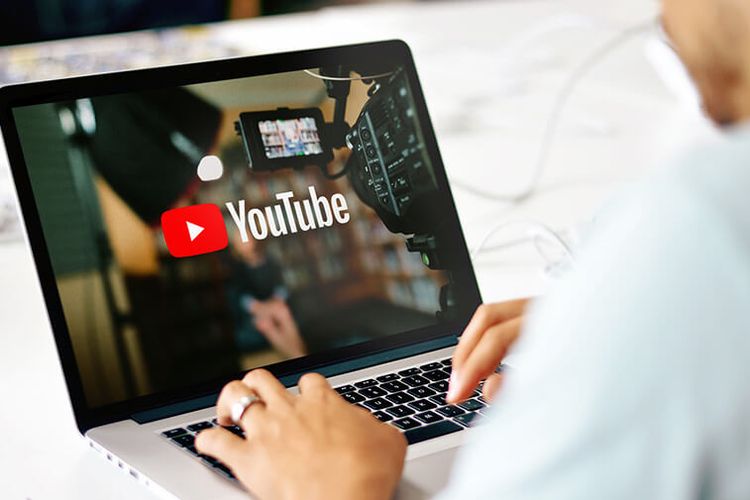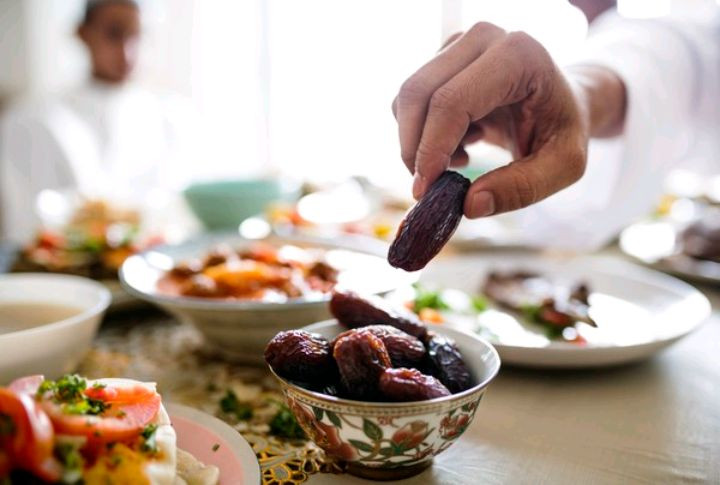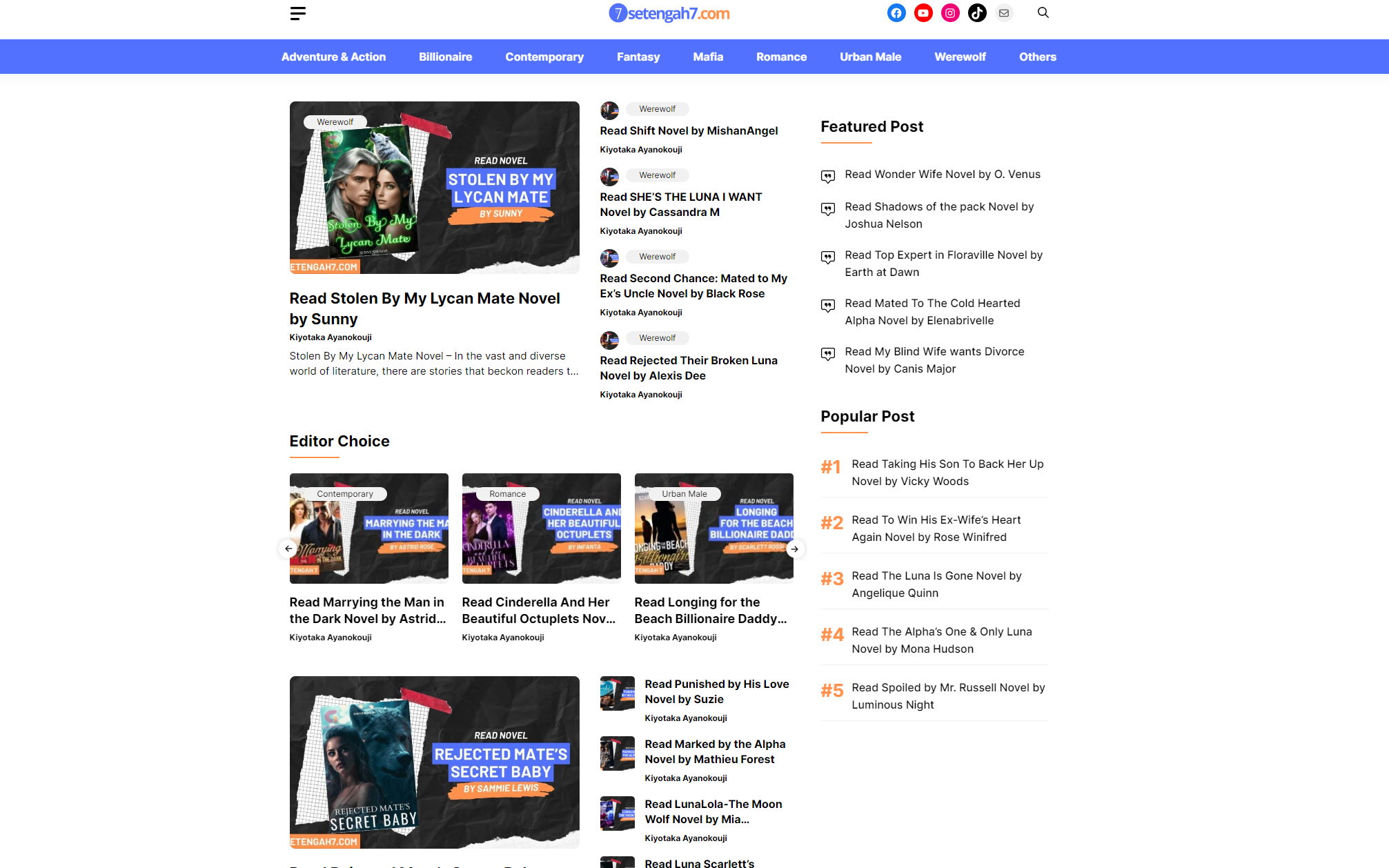Pembicara dalam dialog
Dialog dalam dunia politik atau organisasi pemerintahan biasanya melibatkan banyak pihak yang saling terlibat untuk mencapai tujuan yang diinginkan. Pembicara dalam sebuah dialog bukan hanya terdiri dari satu pihak saja, melainkan setiap pihak yang berkepentingan dalam sebuah permasalahan. Di Indonesia, terdapat beragam tokoh publik yang seringkali diundang untuk menjadi pembicara dalam sebuah dialog.
Pembicara dalam dialog seringkali terdiri dari pejabat pemerintahan, anggota legislatif, akademisi, pengamat politik, aktivis, dan tokoh masyarakat. Setiap pihak yang terlibat dalam sebuah dialog memiliki sudut pandang yang berbeda-beda terhadap sebuah permasalahan. Oleh karena itu, keberagaman pembicara dalam dialog sangat diperlukan.
Pejabat pemerintahan seringkali diundang untuk menjadi pembicara dalam dialog karena mereka memiliki kekuasaan dalam mengambil keputusan terkait kebijakan pemerintah. Pejabat pemerintahan seperti Menteri Kabinet Indonesia Maju atau Gubernur Bank Indonesia adalah contoh dari pembicara dalam dialog yang sering diundang untuk memberikan paparan terkait kebijakan pemerintah.
Selain pejabat pemerintahan, anggota legislatif juga sering diundang untuk menjadi pembicara dalam dialog. Anggota legislatif bertugas untuk mengawasi kebijakan pemerintah dan terlibat dalam proses pembuatan undang-undang. Pembicara dalam dialog dari kalangan anggota legislatif biasanya membahas topik terkait dengan perundang-undangan.
Akademisi juga sering diundang untuk menjadi pembicara dalam dialog karena mereka memiliki pengetahuan yang lebih mendalam terkait dengan topik yang dibahas. Akademisi seperti profesor atau dosen universitas sering menjadi pembicara dalam dialog terkait dengan isu sosial, ekonomi, atau politik.
Pengamat politik juga sering diundang untuk menjadi pembicara dalam dialog. Pengamat politik biasanya merupakan jurnalis atau analis politik yang memiliki pengetahuan dan pengalaman dalam memperhatikan pergerakan politik dalam suatu negara. Mereka sering menjadi pembicara dalam dialog terkait dengan isu politik nasional dan internasional.
Aktivis dan tokoh masyarakat sering diundang untuk menjadi pembicara dalam dialog karena mereka memiliki pengalaman langsung terkait dengan permasalahan yang dibahas. Aktivis dan tokoh masyarakat seperti pemimpin organisasi kemasyarakatan atau penggiat hak asasi manusia sering menjadi pembicara dalam dialog terkait dengan isu sosial.
Selain dari kalangan tersebut di atas, pembicara dalam dialog juga bisa berasal dari kalangan lainnya, seperti pengusaha, tokoh agama, atau pelaku seni. Setiap pembicara yang diundang harus mampu menyampaikan pandangan atau solusi terbaik terhadap permasalahan yang dibahas.
Di Indonesia, banyak dialog yang diadakan oleh pemerintah atau organisasi swasta yang mempertemukan setiap pihak untuk membahas sebuah permasalahan dan mencari solusi bersama. Adanya pembicara dalam dialog yang beragam dalam setiap dialog dapat memberikan sudut pandang yang lebih luas dalam membahas sebuah isu dan menghasilkan keputusan yang lebih baik.
Kini, banyak juga dialog yang diadakan secara virtual terutama di masa pandemi Covid-19. Dialog virtual tersebut dapat diakses oleh masyarakat luas melalui internet. Dengan adanya dialog virtual, masyarakat dapat turut serta dalam membahas masalah yang dihadapi serta memberikan masukan kepada pembicara dalam dialog.
Sebagai kesimpulan, pembicara dalam dialog terdiri dari beragam pihak yang memiliki kepentingan dan pandangan yang berbeda. Pejabat pemerintahan, anggota legislatif, akademisi, pengamat politik, aktivis, dan tokoh masyarakat adalah beberapa contoh dari pembicara dalam dialog di Indonesia. Adanya keberagaman pembicara dalam dialog dapat menghasilkan keputusan yang lebih baik dalam memecahkan sebuah permasalahan serta memberikan sudut pandang yang lebih luas dalam pembahasan sebuah isu.
Peran Pemimpin dalam Dialog
Indonesia, as a diverse nation with more than 17,000 islands, is home to various ethnicities, cultures, languages, and religions. Therefore, it is not uncommon to see differences, disagreements, and even conflicts arise between them. In such situations, dialogues and discussions play an essential role in seeking solutions and maintaining harmony. And in this process, leaders or pemimpin bear a crucial responsibility to ensure that the dialogue runs smoothly and productively.
The role of pemimpin in dialog is vital since they are the ones who initiate the dialogue and invite various parties to take part in it. They must have excellent communication skills, empathy, and impartiality to make all participants feel heard and valued. Furthermore, they must facilitate the dialogue without imposing their personal agendas or biases, ensuring that all opinions and viewpoints are heard equally.
One excellent example of a pemimpin who played a significant role in Indonesia’s dialog is the late Abdurrahman Wahid, popularly known as Gus Dur. He was the fourth president of Indonesia, widely respected for his strong commitment to democracy, religious tolerance, and cultural diversity. During his presidency and even after his term ended, Gus Dur frequently organized various dialogues and discussions involving different groups in society, from politicians to religious leaders to activists to ordinary people.
One notable example of his efforts to foster dialog was the visit he paid to the remote province of Papua in 2000. At that time, Papua was facing severe political and social unrest, with issues such as separatism, human rights violations, and poverty. Gus Dur met with various parties, including separatist leaders, religious figures, and community representatives, to listen to their concerns and explore possible solutions. His visit was a significant step in the dialogue between the Indonesian government and Papua, which eventually led to several significant reforms in the province.
Another essential role of pemimpin in dialog is to build trust and create a conducive atmosphere for productive discussions. They must ensure that all parties involved are willing to listen and be open to alternative viewpoints. To achieve this, pemimpin must show that they are committed to finding a mutually beneficial solution and not prioritize their group’s interests. They must also be patient and persistent since dialogues can be lengthy and require multiple rounds before reaching a consensus.
One example of successful dialog facilitated by a pemimpin in Indonesia is the peace agreement between the government and the Free Aceh Movement (GAM) in 2005. The Aceh province had been facing a long-standing conflict that claimed thousands of lives and caused significant damage to the economy and society. President Susilo Bambang Yudhoyono appointed a former general, Djoko Suyanto, as the lead negotiator to represent the government. Suyanto demonstrated his commitment to the process by engaging in frequent and intense discussions with GAM leaders, even when progress was slow. Finally, after several rounds of talks, both sides agreed to a ceasefire and signed a peace accord that ended the conflict.
Overall, the role of pemimpin in dialog is critical in Indonesia, a diverse society with many challenges and opportunities. They must have excellent communication skills, impartiality, and commitment to finding a mutually beneficial solution. Furthermore, they must build trust and a conducive atmosphere for productive discussions. By doing so, pemimpin can help maintain harmony, resolve conflicts, and foster social cohesion.
Peran Masyarakat dalam Dialog
Dialog is an essential part of communication in any society, and Indonesia is not an exception. In Indonesia, dialog has been known to be a significant tool in resolving conflicts, reconciling differences, and giving a voice to the people. In every dialogue, individuals have a role to play, and every member is crucial to the dialogue’s success. In this article, we shall discuss the role of masyarakat (society) in dialog.
Masyarakat as the Catalyst for Change
Indonesian society plays a significant role in dialog as the catalyst for change. Masyarakat may be seen as the glue that holds the different parties in a dialogue process together. Dialog, as a tool for change in Indonesian society, needs sensitivity, empathy, and a willingness to listen.” Masyarakat acts as a mediator in a dialogue process, helping parties reach a mutual understanding while ensuring that the dialogue stays on the right course.
Masyarakat, as a mediator, must take up the responsibility to ensure that the dialogue remains impartial while supporting both parties equally. This means that masyarakat must not take sides or align with one party in a dialogue process. It’s essential to maintain a balanced view while holding everyone accountable and responsible.
Also, Masyarakat must bring to the dialogue process the relevant knowledge, be aware of the situation at hand, and understand the parties’ perspectives. This knowledge may help understand the reasons for the conflict, the parties involved, and where possible, identify a solution that considers all involved.
Masyarakat’s Role in Ensuring a Success Dialogue
In ensuring a successful dialogue process, masyarakat must fulfill some crucial roles:
a) Actively listen: Active listening involves paying attention to what the other party is saying while at the same time, responding with empathy, openness, and respect. When the masyarakat listens actively to all parties involved, it helps create an enabling environment for resolving issues.
b) Keep the Dialog Flowing: It’s the role of masyarakat to keep the discussion focused on the issue at hand and ensure that both sides engage in the dialogue process meaningfully. By redirecting the discussion when it deviates from the main topic, masyarakat helps the parties achieve a resolution amicably.
c) Identify Common Grounds: Masyarakat plays a crucial role in identifying common ground when there are obstacles, misunderstandings, or disagreements between the parties involved. Identifying areas where both parties can agree on gives room for fruitful discussions and helps achieve an amicable resolution.
d) Encourage Creative Solutions: It’s the role of masyarakat to encourage both parties to think creatively, exploring new ideas and possibilities beyond existing limitations to find a comprehensive and acceptable solution to the issue at hand.
Conclusion
Every member of Indonesian society has a vital role in dialog, and masyarakat is a crucial part of the dialogue process. Masyarakat acts as the mediator, keeping the discussion focused on the issue at hand, and helping parties reach an amicable agreement. By actively listening, keeping the dialogue flowing and identifying common grounds, masyarakat plays a significant role in achieving a successful, sustainable, and inclusive dialogue.
Peran media dalam dialog
Media memainkan peran penting dalam setiap dialog di Indonesia. Banyak orang yang menyebutkan bahwa media seharusnya menjadi mediator yang baik antara masyarakat dan pemerintah. Hal ini karena media memiliki kekuatan untuk memberikan berita dan informasi yang cepat dan akurat kepada publik. Selain itu, media juga dapat memberikan masukan atau saran yang berguna kepada pemerintah dalam menyikapi berbagai masalah yang dihadapi oleh masyarakat.
Seperti yang kita ketahui, Indonesia adalah negara yang sangat luas dan memiliki banyak ragam budaya. Terkadang perbedaan kebudayaan ini menyebabkan munculnya konflik di antara masyarakat. Namun, media dapat membantu mengatasi permasalahan tersebut dengan membuat program-program yang berfokus pada kerja sama antar kelompok atau budaya yang berbeda.
Salah satu contoh dari peran media dalam dialog adalah ketika media memberikan liputan yang mendalam tentang demonstrasi yang diadakan oleh gerakan mahasiswa untuk menuntut reformasi di era Orde Baru. Saat itu, media dengan berani meliput aksi demo yang dilakukan oleh mahasiswa yang menentang pemerintah Orde Baru. Berkat laporan yang akurat dan berimbang dari para jurnalis, tuntutan mereka untuk reformasi akhirnya terdengar di seluruh negeri. Efek dari laporan ini bahkan sampai ke kancah internasional dan berdampak pada reputasi Indonesia sebagai negara yang ramah demokrasi.
Semakin berkembangnya teknologi, media saat ini tidak hanya terbatas pada media cetak dan televisi saja. Saat ini, media sosial seperti Facebook, Twitter, dan Instagram menjadi saluran yang sangat efektif bagi masyarakat untuk berdialog dan menyampaikan pendapat mereka. Dalam hal ini, media sosial dapat menjadi, atau belum tentu menjadi, sarana yang baik untuk memperkuat dialog.
Kreativitas dan keberanian jurnalis juga sangat diperlukan dalam memainkan peran mereka sebagai mediator. Mereka harus berani mengusik kepentingan apa pun yang menghalangi kemerdekaan pers dan memberikan informasi aktual kepada publik. Selain itu, mereka juga harus mampu menciptakan ide atau program yang dapat memperkuat toleransi, kerja sama, dan perdamaian antar kelompok budaya yang berbeda.
Sebagai contoh, terdapat sebuah program televisi yang berjudul “Indonesia Tanpa Konflik”. Program tersebut dirancang dengan tujuan untuk mengatasi konflik yang terjadi di beberapa wilayah di Indonesia. Dalam setiap episode acara, para peserta dibagi menjadi beberapa kelompok yang berbeda-beda dan diharapkan dapat menyelesaikan permasalahan yang diberikan dengan cara berdialog dan berunding satu sama lain.
Selain itu, media juga dapat menjalankan peran sebagai pengontrol kekuasaan, khususnya dalam situasi di mana korupsi dan tindak pidana lainnya yang dilakukan oleh pejabat publik dan pengusaha sering terjadi. Dalam hal ini, media dapat membantu menjadikan pemerintah dan pengusaha lebih bertanggung jawab dengan membongkar praktik-praktik yang tidak jelas yang dilakukan oleh mereka secara terbuka. Hal ini berguna untuk menghindari terjadinya pembiaran dari aparatur negara dalam melakukan tindakan yang melanggar hukum.
Dalam rangka memperkuat demokrasi di Indonesia, sangat penting bagi media untuk dapat memainkan peran mereka sebagai mediator yang baik. Melalui kreativitas dan keberanian mereka, diharapkan dapat dihasilkan dialog yang harmonis dan mampu menghasilkan keputusan yang saling menguntungkan untuk setiap pihak yang terlibat.
Peran organisasi dalam dialog
Dialog is an essential process in resolving conflicts and misunderstandings in Indonesia. It involves individuals, groups, and organizations that come together and exchange their views to reach to a common understanding. In this process, organizations play a vital role, as they represent the interests of specific communities and help bridge the gap between the government and society. In this article, we will discuss the role of organizations in dialogue in Indonesia.
Raising awareness and mobilization of the community
Organizations can play a critical role in increasing awareness and mobilizing the community for dialogue. They can conduct information campaigns to educate people about the importance of dialogue and encourage them to participate in the process. By mobilizing people, organizations can increase the representation of different perspectives and communities, thereby making the dialogue more inclusive and effective.
Facilitating communication and negotiation
In a dialogue, the role of organizations is to facilitate communication and negotiation between the parties involved. They can act as mediators or go-betweens to help different parties to communicate effectively and find common ground. Organizations can also provide technical expertise and information to help the parties in understanding the issues and finding suitable solutions.
Advocating for the interests of communities
Organizations have the responsibility to advocate for the interests of the communities they represent. They can raise different concerns and viewpoints of their community, ensuring that their voices are heard during the dialogue process. In this aspect, organizations play a vital role as they channel the aspirations and concerns of communities to decision-makers and other stakeholders.
Ensuring sustainable development and peace-building
Organizations can ensure sustainable development and peace-building during dialogue. Through its programs, activities and actions, organizations can contribute positively to society’s socio-economic development. In terms of peace-building, organizations can support dialogue, mediation, and conflict resolution initiatives, helping to promote peace in the community.
Creating networks and coalitions
Organizations can create networks and coalitions and bring different communities together for dialogue. These networks can increase the representation of communities in the dialogue process and act as a channel for disseminating information and coordinating actions. By creating networks and coalitions, organizations can strengthen their capacity for dialogue and increase their impact in promoting peace and development.
In conclusion, organizations play a critical role in the dialogue process in Indonesia. They can raise the awareness of different communities, facilitate communication, advocate for their interests, and ensure sustainable development and peace-building. By creating networks and coalitions, organizations can amplify their impact and contribute towards a more peaceful and developed society.


